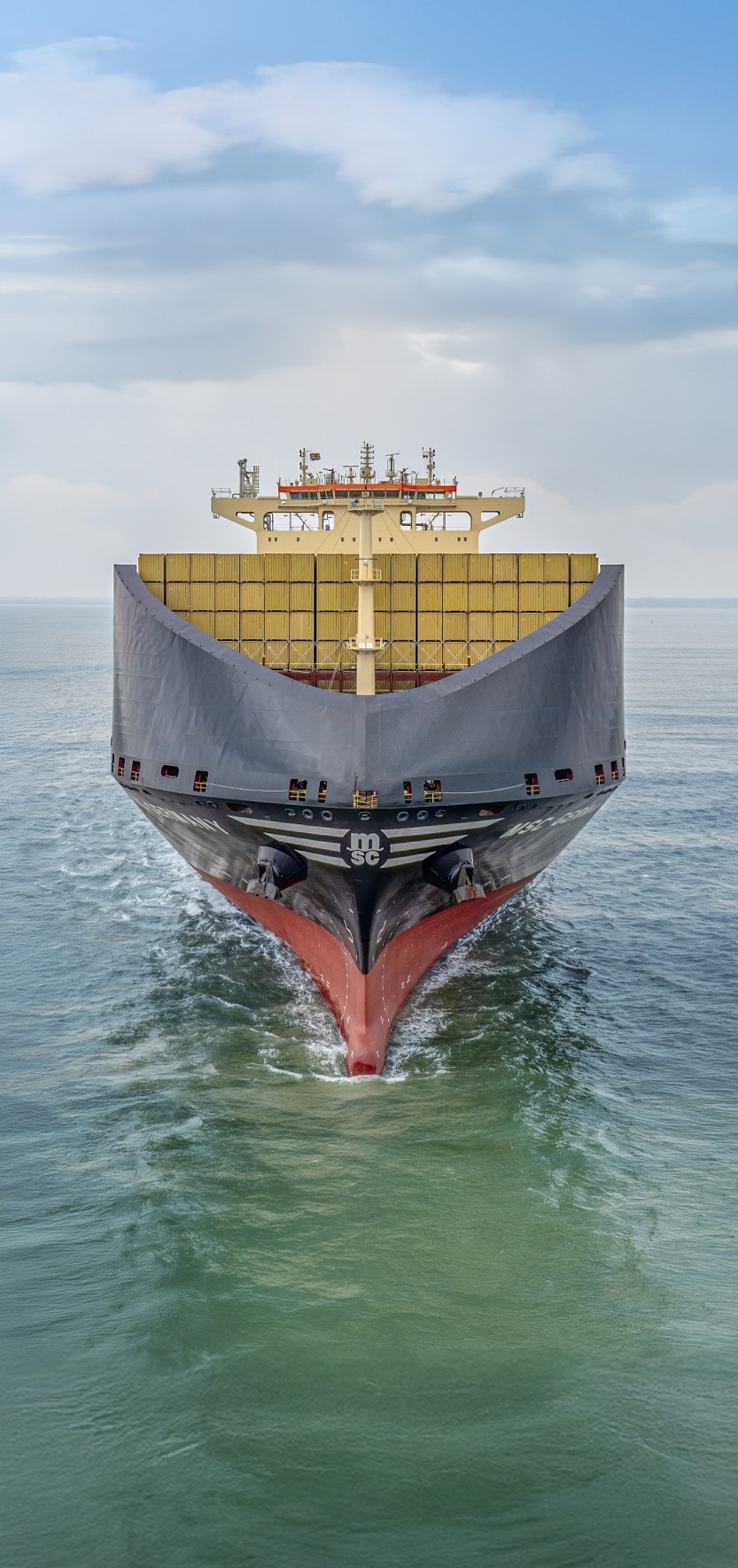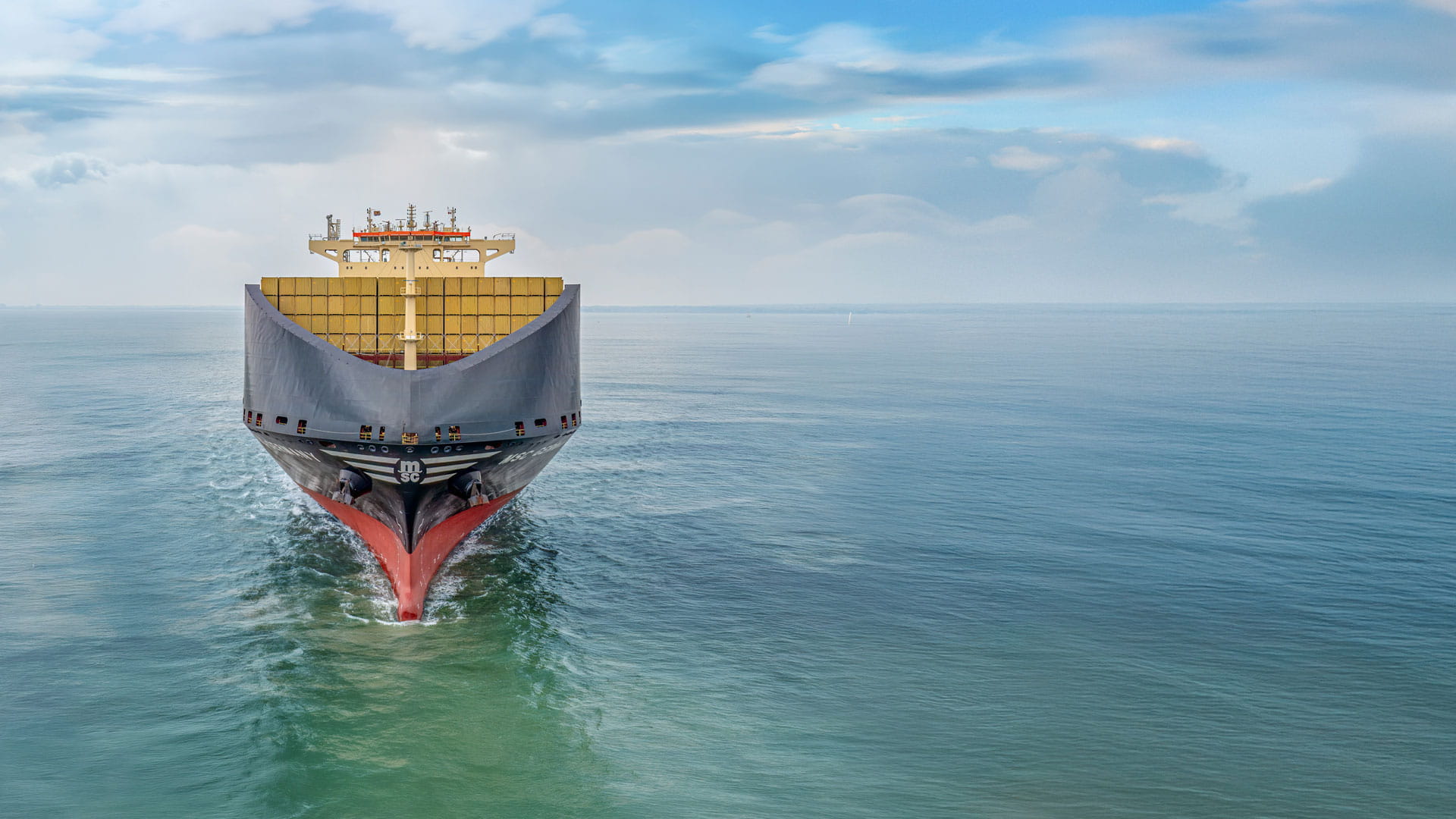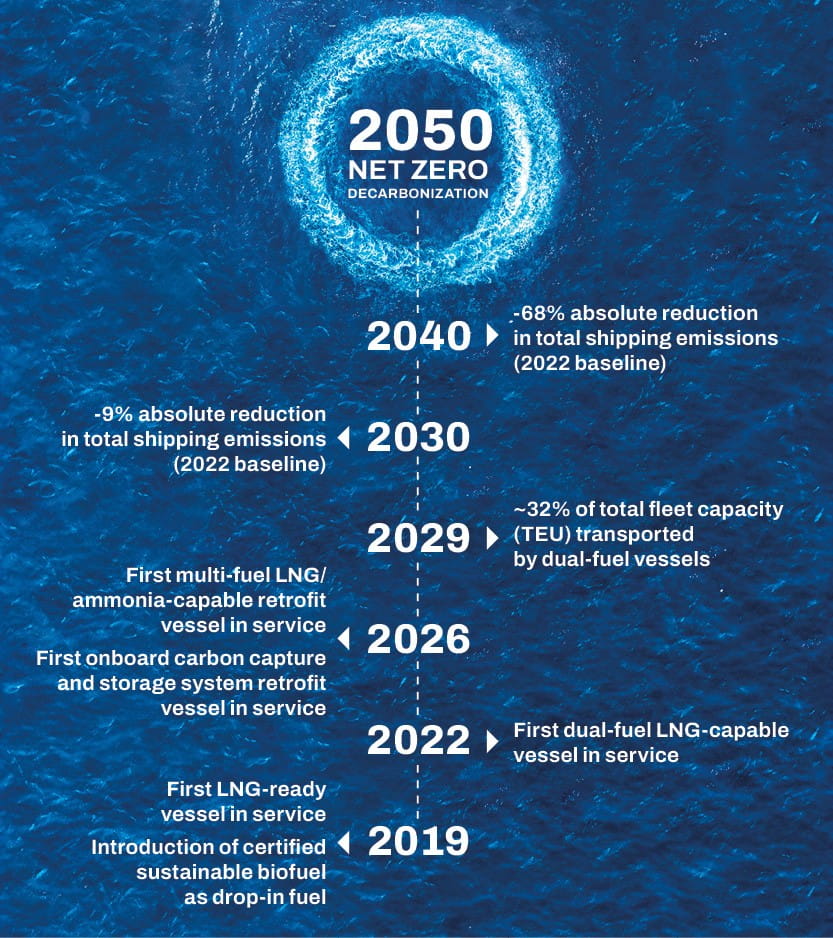Our Journey to Net Zero
Climate action is a global imperative, requiring collective action as we navigate our journey to net zero. MSC has a key role to play in decarbonizing logistics, collaborating with others across the value chain to accelerate solutions at scale, while ensuring a just energy transition. As a key part of our customers’ supply chains, we see ourselves as partners in decarbonization and enablers of their increasingly ambitious climate targets.
We enable logistics decarbonization by aiming for carbon neutrality; supporting logistics transition solutions; and maintaining a focus on energy efficiency.

MSC is committed to an energy transition targeting net-zero decarbonization by 2050. We are investing in a massive newbuilding programme and a far-reaching retrofit plan. We continue improving the energy efficiency of our fleet through a range of measures.
By engaging and joining forces with others, MSC plays a role in scaling up solutions and accelerating the energy transition. We are also investing and collaborating with partners, conducting research, trials and pilots focused on accelerating innovation and scaling up production of fuels and technologies. Read more about our partnerships for decarbonization.
Our focus is on ensuring the readiness of our fleet to adopt low- and zero-carbon fuels as they become available. We are investing in new vessels with the flexibility to operate using different fuels. In addition to the 32 dual-fuel LNG vessels in service at the end of 2024, MSC’s fleet continues to expand with the delivery of dual-fuel vessels that will offer opportunities to transition to bio- or synthetic LNG.
Through MSC Biofuel Solution we are offering customers the opportunity to reduce their supply chain emissions using responsibly sourced and certified sustainable biofuel, reducing CO2 emissions by up to 84%.
As we work towards our net-zero target, we have set goals to progressively reduce our carbon intensity by implementing an array of energy efficiency measures including fleet and routing, aerodynamics and hydrodynamics, the propulsion system, digital solutions as well as carbon capture and storage.
Our fleet renewal plan includes the delivery of energy efficient newbuildings as well as ongoing implementation of our retrofit plan. Vessel performance and route optimization are key elements of our energy efficiency programme, such as the installation of a data-driven vessel management system across the MSC fleet, building digital twins of vessels and hull cleaning and inspection.
Intermodality is the way forward in tomorrow’s freight transport landscape, connecting land and sea and creating new strategic corridors, while also facilitating the modal shift from road to rail and thereby helping to reduce emissions. Through our ongoing rail investments and the development of logistics hubs, MSC has been enhancing intermodal logistics by leveraging the unique strengths of different transportation modes – including road, rail and barge – to decarbonize the value chain.
Terminals play an important role in our commitment to reducing emissions across our business. Decarbonizing terminal operations comes with a focus on two main areas: lowering energy consumption through improved efficiency and reducing reliance on fossil fuels. Key strategies to reduce the carbon content of energy include electrifying equipment, switching to low- or zero-carbon fuels and sourcing or generating electricity from renewable energy sources.



